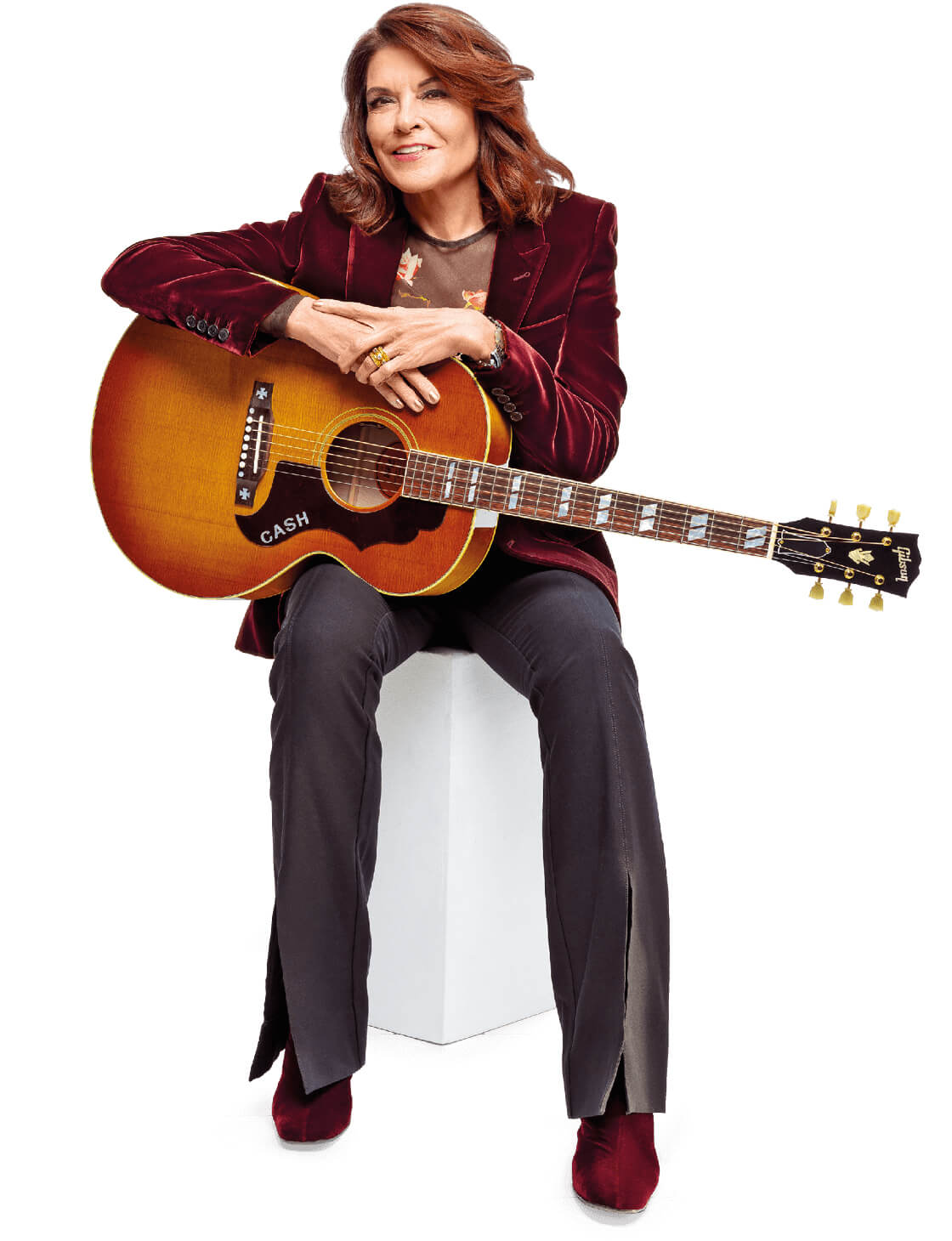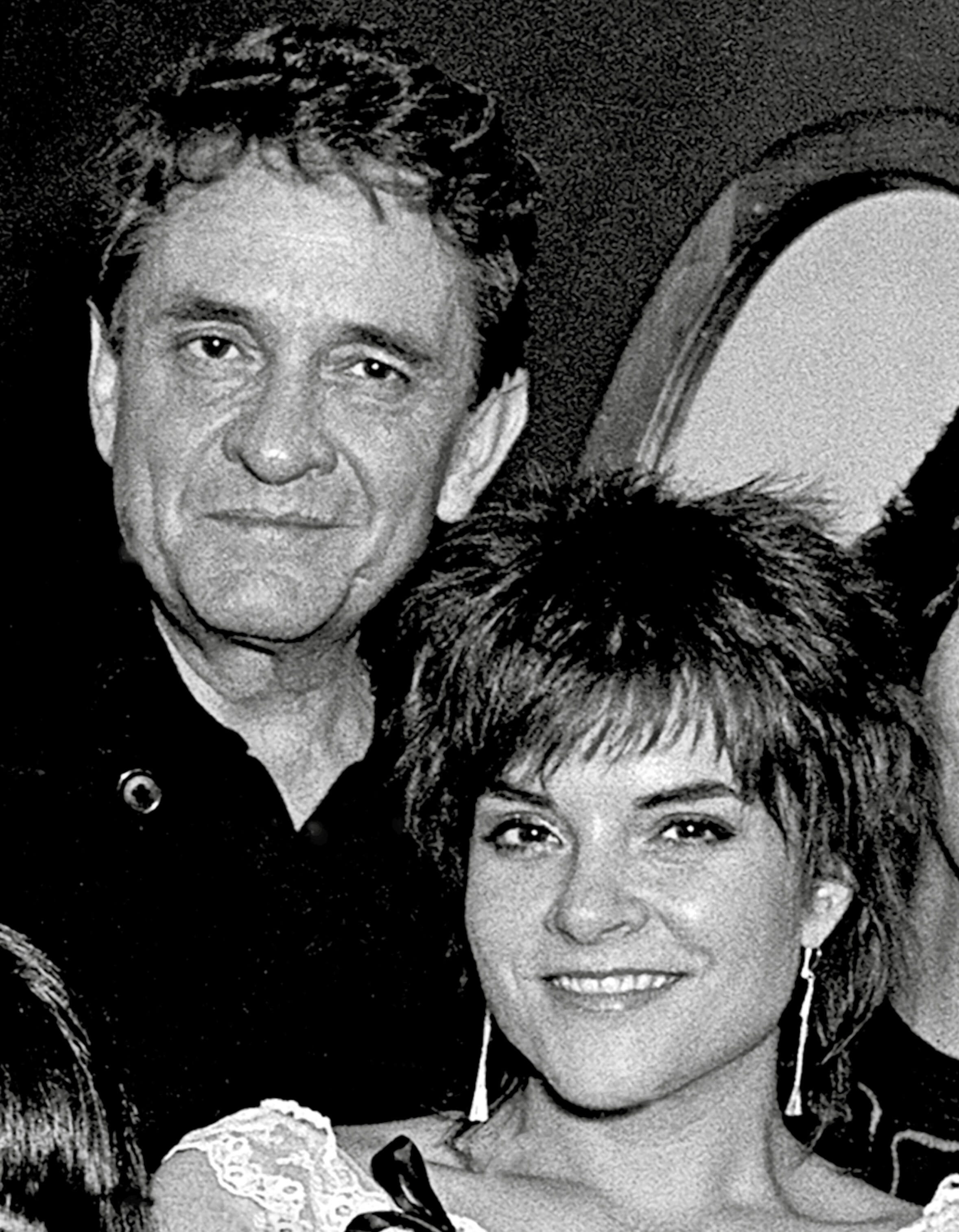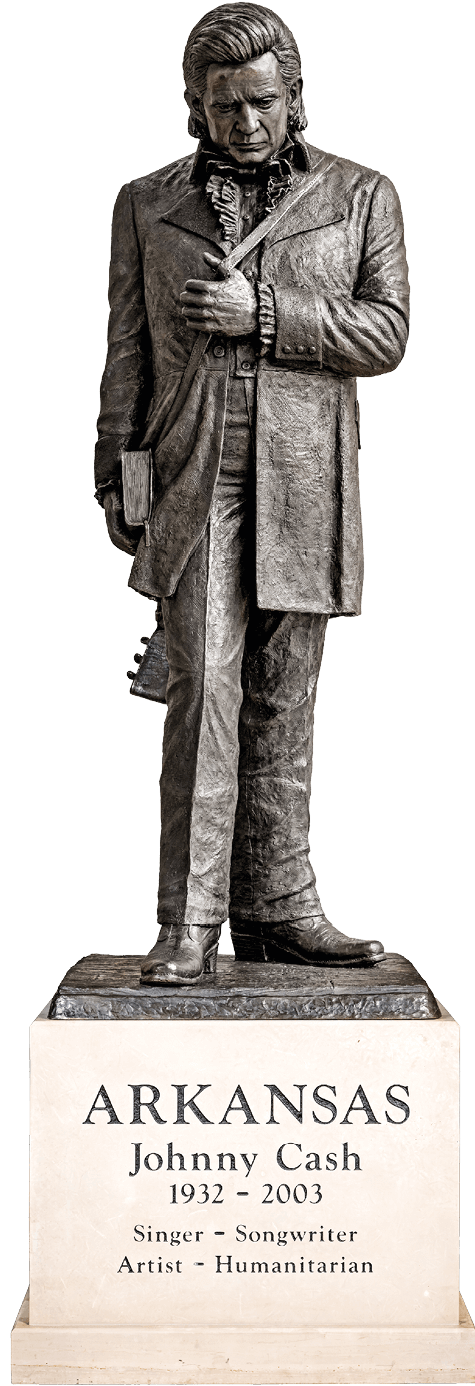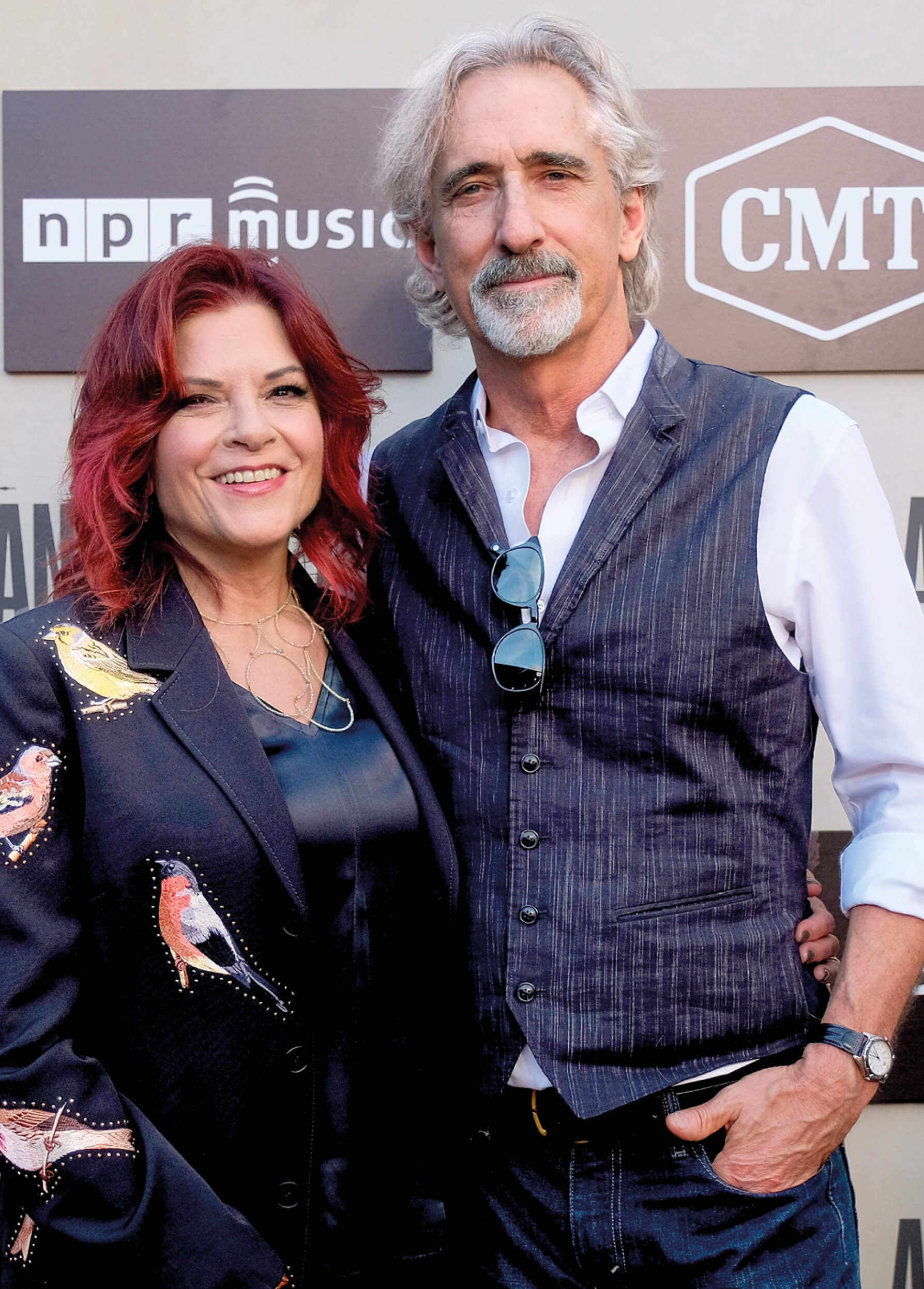UPFRONT/WHAT I KNOW NOW
Rosanne Cash
The singer-songwriter riffs on life with her parents, finding normal, and the importance of legacy

The beginning matters
My parents were very young and extremely poor when I was born. My mother had two dresses. And they had one fountain pen, which they had to share. Dad [the musician Johnny Cash] took it to work, so Mom couldn’t write anything down until he brought it home. And then my dad went on the road all the time. My mom had a lot of anxiety about that. And about my dad starting fires. Once the whole hillside burned, which was an accident—he was driving his tractor through dry brush. I still remember the feel of the smoke in my chest. And my mother suspected my dad was having affairs. When he got with June Carter, it was clear he was moving away. My mother became depressed and anorexic, and probably had a borderline personality. So I had to become an adult, caring for my three younger sisters. As an artist, I don’t believe you have to keep suffering. But I think the original wounds can be source material, a place that’s open.

Rosanne and dad
Seek refuge
I love language. I love grammar and punctuation, the Oxford comma, the sound of words. Onomatopoeia. Shakespeare. At 4, I desperately wanted to go to school. I asked my mother about every word I saw. I wanted to go to the library and read. There was so much going on at home that I tried to find safety in my imaginary life and in the library and in books and music, particularly when I got to be in my early teens. All that was refuge, and it seeded the inspiration for later.
Learning what’s normal
John [Leventhal, her husband] says that I “front” normal. Coming from such an abnormal childhood, I worked really hard to seem normal my whole life. I would think to myself: “What do people do on New Year’s Eve? They drink champagne. OK, I’ll do that.” It’s the reason I love the Little House books. It’s washing on Monday, scrubbing on Tuesday, baking on Wednesday.
Make change happen
When I was 20, I spent six months in London working for a record company, and it utterly changed my life. I was trying to make myself something different while I was there. That’s harder when you’re older.
How to channel a song
If it doesn’t sound too self-aggrandizing, I’d say there are songs out in the universe that are complete, and if you’ve gotten to a certain place in your songwriting, you can receive them.
Embrace your legacy
When the Country Music Hall of Fame asked me to do an exhibition [Rosanne Cash: Time Is a Mirror, through March 2026], I started pulling out lyric books and photographs and clothing, like the green suede jacket that my dad had made for me in Greenwich Village when I was 14. These things are now really precious to me and I realized that some of the things you push away the hardest when you’re young are the things that you embrace the tightest when you get older.

Immortal Johnny
My dad now has a statue in the Capitol, representing Arkansas along with [civil rights hero] Daisy Bates of the Little Rock Nine. He would be prouder of that than any award he ever got, because that’s touching immortality. It was like an out-of-body experience at the unveiling. But there was a feeling of sweet grief, as well, because my son, Jake, said, “Once he’s in bronze, he’s really gone.”
Solace in Psalms
When my dad’s eyesight was failing, one of the great regrets of his life was that he couldn’t read anymore, because he loved his books. So I would read the Psalms to him every morning on the phone. He’d go, “Slow down, slow down,” because he really wanted to take in every word. Once, and I still feel terrible about this, I went up to the country and forgot to take a Bible with me. But I found a book, and I said, “Dad, I don’t have the Psalms. I have Shakespeare.” And he went, “Shakespeare, huh? I’ll just wait.” [Laughs]

With husband John Leventhal
Fine-tuning parenting
My first husband [singer-songwriter] Rodney Crowell and I raised four daughters [including Rodney’s daughter Hannah from his earlier marriage] and then John and I had a son. One of my really big life lessons is that girls and boys are very different. My girls are all dramatic, and their feelings are out in the open, and everything is big. But Jake taught me to respect his emotional privacy. Something else that I learned is that all my kids take unsolicited advice as criticism. So I’ve learned to keep my mouth shut, even if I have to bite my tongue.
It isn’t brain surgery—oh wait ...
In the late ’90s, I had polyps on my vocal cords and couldn’t sing for a couple of years. And then I had debilitating headaches that led to brain surgery in 2007. Pain is a very lonely country, and at some point you stop talking about it, because that further distances you from people. But those kinds of experiences gave me more compassion for others in ways that nothing else could have taught me.
Being 69
I’m turning 70 in May. And I’m nervous about it, in part because both my parents died at 71. I don’t feel old, but there is no universe in which I can claim to be young anymore. My knees kill me, and I get more tired. I was talking to Elvis Costello about this, and he said he lies in bed and does the math. I do that, too. Can I make it until my grandchildren graduate from high school?
Come together
I think about community a lot, because we need it more than ever, given the cultural narcissism that goes on, when it’s all about me, my house, what I want for my kids—not our kids, not our climate, our future. At the end of the show every night I say, “We’ve created community in two hours. You can spread it out to your town, the rest of the country, the world.” Every individual has power. —As told to Alanna Nash
Four-time Grammy winner Rosanne Cash, 69, just released Rosanne Cash: The Essential Collection, on her label, RumbleStrip Records.

MEMBERS ONLY
For our video of Rosanne Cash, visit aarp.org/rosannecash.
From top: Photographer: Derek Reed; Hair and Makeup Stylist: Rosemary Redlin; Rick Diamond/Getty Images; Architect of the Capitol; Jason Kempin/Getty Images